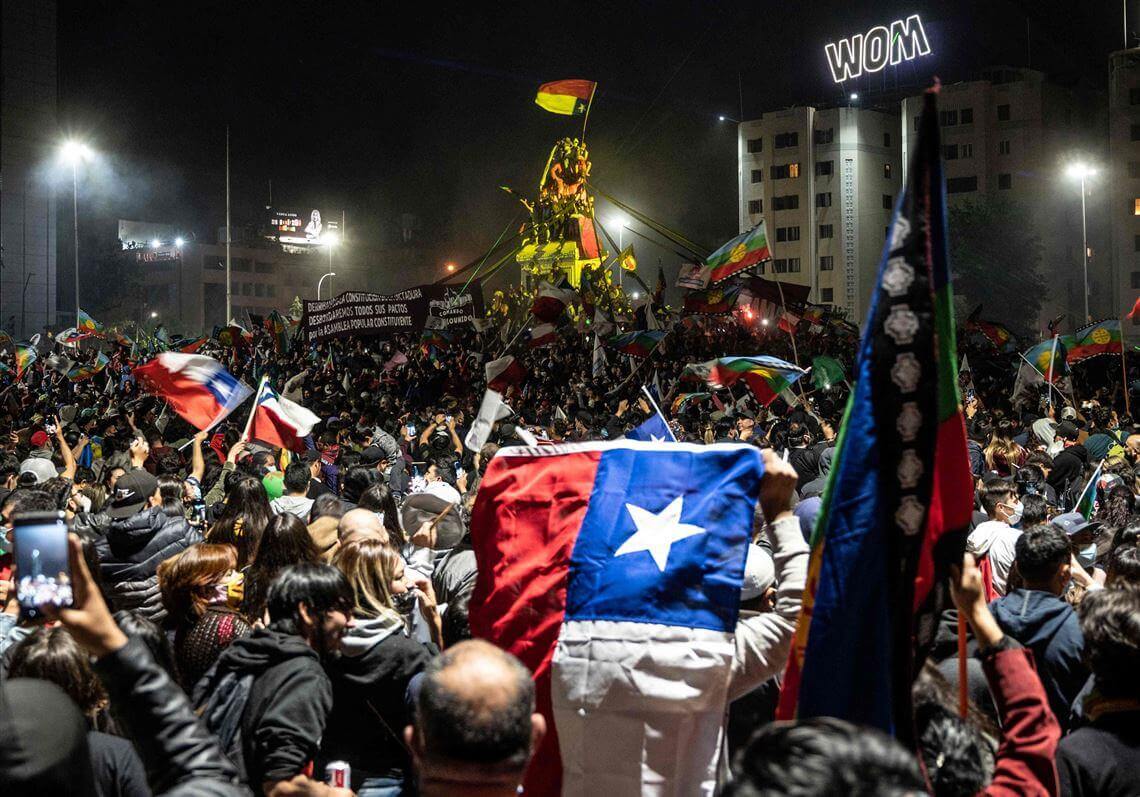Celebrations are underway in Chile after citizens overwhelmingly voted in favor of drafting a new constitution to replace the one that was approved by former dictator Augusto Pinochet in 1980.
Over 78%, or 6 million Chileans, voted ‘yes’ in the referendum that asked: “Do you want a new constitution?”.
The second question, which was entirely dependent on whether the first question secured a majority of approvals, asked: “What kind of body should write the New Constitution?” Citizens were asked to pick between two options: the first was for it to be written by a constitutional convention with new representatives elected by the people; and the second option was for it to be written by some new representatives alongside some existing congressional representatives. Ultimately, 79% of voters chose to entrust the drafting of a new constitution to only newly elected representatives rather than involving existing parliamentarians.
In moving towards a new constitution, Chileans have signaled that they wish to move on from the dark days of Pinochet’s dictatorship. From 1973 to 1990, it is thought that at least 3,200 citizens were murdered and a further 27,000 were tortured. Doing away with a Pinochet-era constitution is a form of catharsis for many citizens who wish to remove any remnants and relics of that period from influencing modern-day Chile.
The current constitution was approved in 1980 by 66% of citizens, but it has long been understood that this was in part influenced by the intimidation tactics of a government that banned the establishment of political parties, indulged in “heavy censorship”, and violently suppressed political dissidents.
At the same time, though, Chile is also in the midst of long-term protests against systemic inequality, corruption, and elitism. Over the past year or so, tens of thousands of protestors have taken to the streets to demand the resignation of President Sebastián Piñera, and their resolve has only been hastened by the brutal response of security forces. Last year, there were 30 deaths and thousands of injuries reported in anti-establishment protests.
Over the past three decades, income inequality has risen in Chile, with 10% of the population now controlling 40% of the country’s wealth, making it one of the most ‘unequal’ developed nations. Protestors have denounced the fact that the rich are afforded tax breaks while the poor are not provided with adequate social safety nets or adequate medical care.
Piñera appeared to welcome the results of the referendum, saying, “It is the beginning of a path, which together we will have to go through to agree on a new constitution for Chile.” In his televised address to the nation, the center-right leader remarked, “Until now, the constitution has divided us. From today, we must all work together so that the new constitution is the great framework of unity, stability and future.” His words must no doubt be taken with a pinch of salt, given that he has in the past expressed his opposition to drafting a new constitution. In fact, he only agreed to the referendum after multiple deaths and injuries to demonstrators last year.
The results of the plebiscite were also celebrated by Venezuelan President Nicolás Maduro, former Colombian Senator Piedad Córdoba, former Bolivian President Evo Morales, and former Argentinian Senator Alicia Castro.
The outcome of the referendum sets the wheels firmly in motion for the drafting of a new constitution. On April 11 of next year, Chile will hold a constituent convention to determine the 155 representatives to write the new document. These elected representatives will then have nine months to draft a new constitution, with the option of asking for a three-month extension. Finally, in 2022, the Chilean citizens will vote on whether to approve their proposal.
Chileans Vote Overwhelmingly in Favor of Drafting New Constitution
Well over two-thirds of Chileans voted to replace the Pinochet-era document.
October 27, 2020

IMAGE SOURCE: PEDRO UGARTE / AFP VIA GETTY IMAGESDoing away with a Pinochet-era constitution is a form of catharsis for many citizens who wish to remove any remnants and relics of that period from influencing modern-day Chile.
